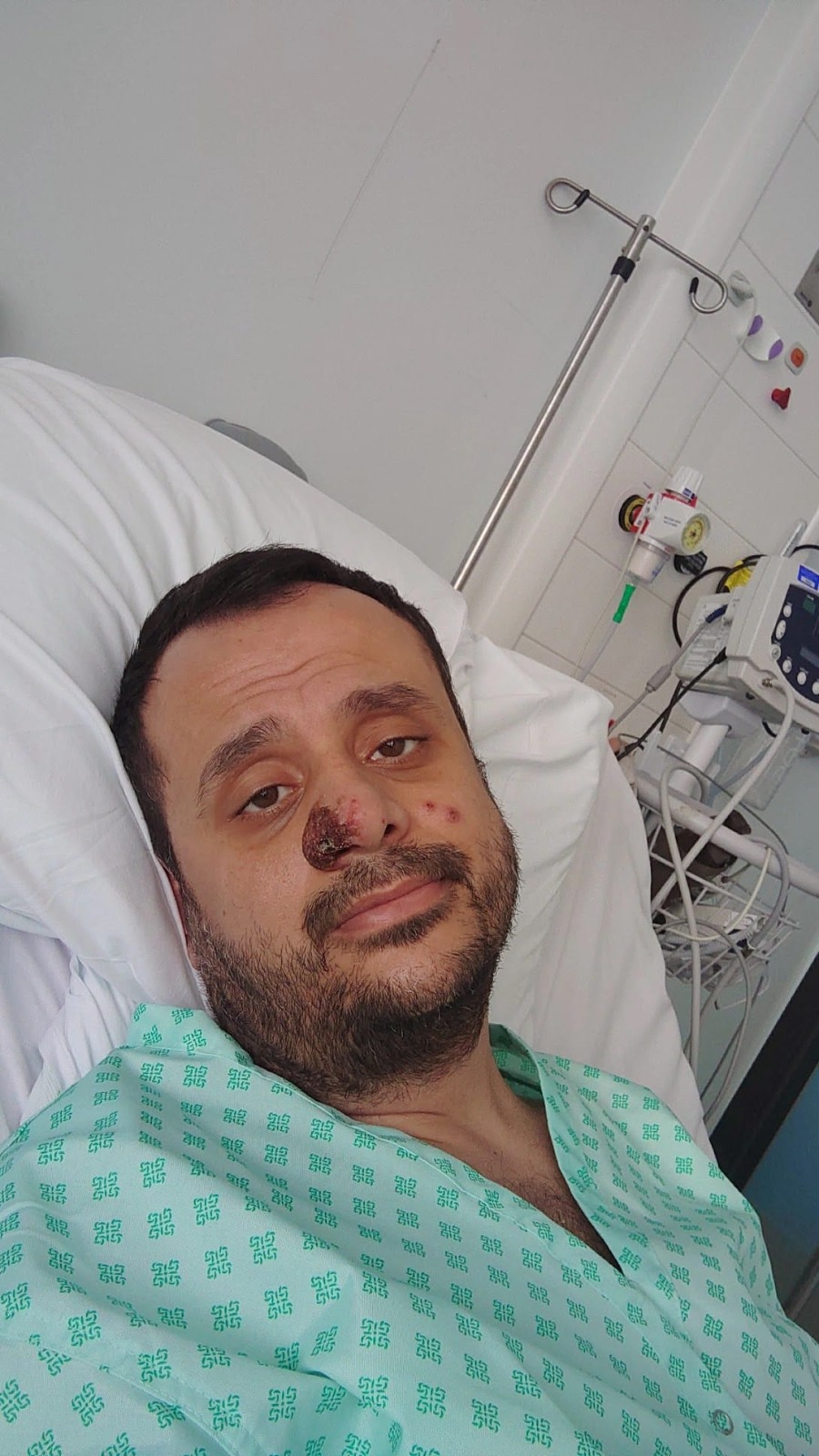Fears over ‘stigma’ of monkeypox amid lack of support
Former patient says lack of financial support stopping people from isolating
Friday, 26th August 2022 — By Anna Lamche

Harun Tulunay while he had monkeypox at the Royal Free Hospital
A CHARITY worker who contracted the monkeypox virus has warned that a chronic lack of support is forcing patients to go to work without getting treatment.
Harun Tulunay, who praised the Royal Free Hospital for his speedy recovery after he was initially misdiagnosed with tonsillitis, said the government needed to do more to help people quarantining with the disease.
He was diagnosed in June with the condition caused by a virus that is similar to smallpox, with typical symptoms including swollen glands and a rash of raised and fluid-filled blisters.
He was told to isolate for at least two weeks but without any financial support. Official cases in Camden rose to more than 100 this week.
Mr Tulunay said: “People are hiding their lesions because they’re afraid to lose their jobs. Because of the stigma attached, they are afraid to tell their bosses. We need financial support and relief and legal protection for those diagnosed who need to isolate.”
COMMENT: THE CofE BEARS WITNESS SO ITS VIEWS SHOULD BE AIRED AMID INJUSTICES
The New Journal reported earlier this month on councillors’ concerns that many Camden residents were desperate for a vaccine. With the vaccine in short supply, the government is currently trialling “mini doses” of the jab to make their supplies last longer. Just one company produces an approved vaccine in the world.
“The rights of this vaccine should be shared so it can be produced by multiple companies,” said Mr Tulunay.
While data suggests monkeypox is most prevalent among men who have sex with men, he said anyone can contract the virus. “This is not a gay-related illness,” said Mr Tulunay. “Anybody can catch it. We can’t ignore the fact that in Spain, women and children are catching it.”
Mr Tulunay lives in Islington and works for Holloway-based HIV charity Positively UK. “My symptoms weren’t usual. It started with fever and swollen glands,” he said.
He developed a fever rash but no blisters. After initially being diagnosed with tonsillitis, Mr Tulunay later tested positive for monkeypox at the Homerton.
He was transferred to the Royal Free, where he said he received “amazing” care, adding: “They did everything for me. I got better thanks to them. I’m still in contact with my consultant. The nurses were so amazing – they were bringing me my favourite snacks.”
He spent 10 days in hospital before being discharged, where he isolated at home for a further two weeks, until all his scabs healed. Monkeypox is most commonly spread by close physical contact with infected people, or by sharing their clothing or bedding.
According to Mr Tulunay, the disease is most common among men who have sex with men because “it is a very small community, so the spread is very speedy”.
A memo sent out to Camden GPs on Friday said the eligibility for the monkeypox vaccine was “similar to the criteria used to assess those eligible for HIV pre-exposure prophylaxis (PrEP)” and based on “a criteria of recent history of multiple partners, participating in group sex, attending sex on premises venues or having a bacterial STI in the past year”.
The UKHSA said those unable to work while quarantining “may be eligible for financial support” via the Employment and Support Allowance, Universal Credit, or statutory sick pay.